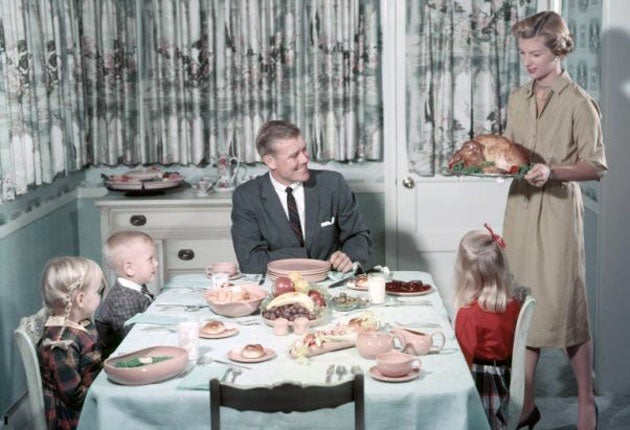How will you be affected by the lowest interest rates since 1955?

As many as one in four mortgage borrowers stands to make a hefty saving after yesterday's 1.5 percentage point cut in the Bank of England interest rate. Anyone with a tracker mortgage will feel the full benefit from as early as next month but, for millions more, it may take much longer before any positive effects are felt.
Tracker mortgages
These directly track any movement in the Bank of England rate. They account for close to one in four mortgages, and holders will see their rate come down by a full 1.5 percentage points with immediate effect. Given that most tracker mortgages are currently priced at between 5 and 6 per cent, some homeowners' payments will fall by almost a third next month. For a typical family with a £200,000 repayment mortgage – who were paying 5.5 per cent on a tracker loan – their monthly payments will fall by about £170 a month.
Unfortunately, some tracker mortgages, such as those offered by Nationwide and Skipton Building Societies – have "collars", which mean they stop tracking the Bank rate once it falls below a certain level. For Skipton, that is 3 per cent, and for Nationwide, 2.75 per cent.
Trackers are not nearly as good value for new borrowers now. Many banks have repriced their trackers so that they charge 1.5 or more per cent above the Bank rate, and many more have withdrawn their trackers altogether this week.
Libor, the rate at which banks lend to each other, is still well above the Bank rate, and it is Libor which banks use to price their lending rates, not the Bank rate. Unless that comes down, new borrowers will be forced to take out mortgages priced at 2 or more per cent above the Bank rate.
Fixed-rate mortgages
While fixed rate deals for new borrowers are coming down, the best ones are still at well over 5 per cent. People who are currently on fixed-rate loans will see no change to their mortgage payments now, and may find that when the time comes to remortgage the deals on offer are not much better than their current arrangement.
Discount mortgages
These are variable rate loans which track the lender's standard variable rate (SVRs) and SVRs have not been coming down nearly as quickly as the Bank of England rate. Since last month's emergency 0.5 percentage point Bank of England rate cut, only about half of lenders have cut their SVR – and it remains to be seen how lenders react to the latest Bank cut.
If you don't remortgage before you come to the end of a fixed-rate deal, or a fixed-term tracker mortgage, then you'll also find yourself paying the SVR. Currently, only a small handful of borrowers pay the SVR, which is typically at least 1.5 percentage points above base rate. But as borrowers struggle to remortgage, because falling house prices have eaten up any equity in their property, an increasing number of people will be forced to pay SVR.
Savings
Just as mortgage rates are not coming down, neither are savings rates. Most financial institutions are still struggling to raise the capital they need from other banks, so are offering high rates to attract the money of private individuals. The bestno-notice savings accounts are still paying well over 6 per cent.
Business and investment
Although conventional wisdom would suggest that a sharp cut in interest rates would help cut businesses' borrowing rates, increase profitability and make them more attractive to investors, stock markets were unimpressed by yesterday's cut, finishing the day almost 6 per cent down.
Businesses are subject to the same lending constraints that private individuals are. Alas, they can't borrow directly from the Bank of England, they borrow from the banks. And while Libor remains high, businesses will continue to find that refinancing their debt is still an expensive exercise. But rate cuts should work though over time.
For private investors, the stock market volatility is daunting. For the average investor, the best thing to do is to continue drip feeding your savings into your pension each month. In the long run, markets will recover.
1955 The way we were
* A loaf of bread cost 2.5p (6d in old money). Today it costs £1.20.
* A pint of milk cost 2p (5d). Today it costs 45p.
* The average house price was £2,064. Today it is £168,176. Percentage of the population who were owner-occupiers was 53.7 per cent. In February 2008 it was 69.8 per cent.
* A gallon of petrol cost 22.5p (4s 6d). Today it costs nearly £5 a gallon.
* A pint of beer was 4p (9d). Today it costs £2.90.
* A cinema ticket was 9p (1s 9d). Today it costs £4.40.
* 264,500 people were claiming unemployment related benefits.
* Eight million women were working.
* Churchill resigned due to ill-health and the Tories won the general election. Anthony Eden was Prime Minister.
* Stirling Moss became the first Englishman to win the Formula One British Grand Prix for Mercedes.
* Fish fingers are first sold in the UK by Bird's Eye.
* Ruth Ellis was the last woman in England to be executed. She was hung at Holloway Prison for killing her lover.
Subscribe to Independent Premium to bookmark this article
Want to bookmark your favourite articles and stories to read or reference later? Start your Independent Premium subscription today.

Join our commenting forum
Join thought-provoking conversations, follow other Independent readers and see their replies